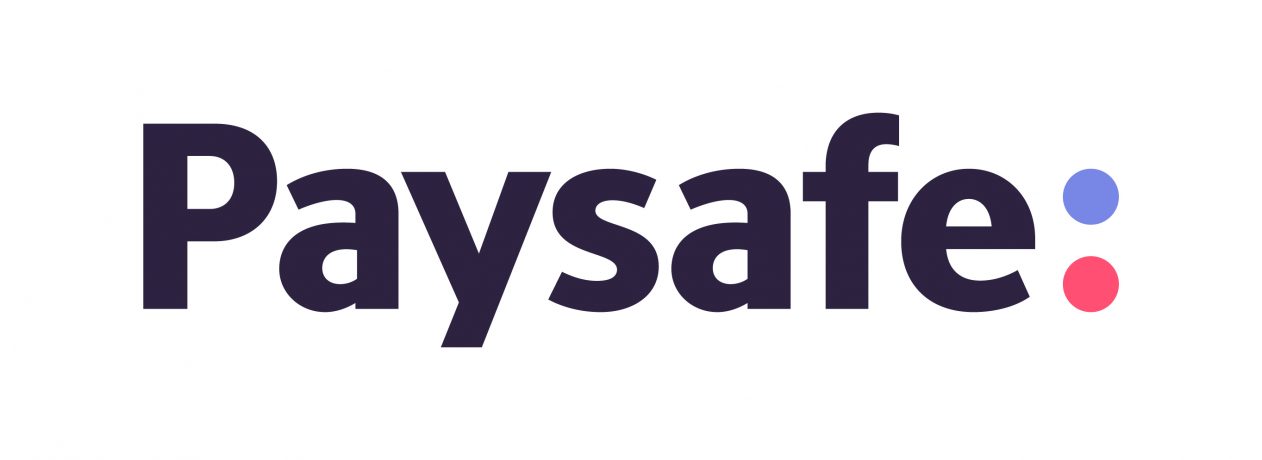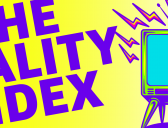As a market leader in the payment solution industry, and with over two decades of online payment experience, Paysafe is the owner of multiple leading brands, which for the gambling industry is most notably paysafecard, Skrill and NETELLER. Recently moving into the Canadian market, and with expansion plans across the US, Paysafe services are available in over 120 countries, supporting more than 40 currencies around the world. Today we spoke to Zak Cutler, President of Global Gaming for Paysafe, to get his views on safer gambling measures, developments in the North American market and how Paysafe navigates the varying requirements of each jurisdiction.
AS: Paysafe’s payment solutions are a favourite in global iGaming – what helps your main brands – Skrill, NETELLER and paysafecard – stand out from the competition?
ZC: We have a double-sided approach – firstly there’s a consumer adoption approach, which is born from brand recognition. If you look at deals that we’ve done, whether it be sponsorships, or traditional marketing on the B2C side. We’ve built a strong customer base over the last 12 to 15 years and as a result of this, you start to get a really deep understanding of consumer behaviour and see where the general affinity lies. We very much focus on these trends.
It also depends on the demographics and the buying power, but we recognise that our customers have a strong affinity for gaming and gambling products, and entertainment products in general, which all translates well on the merchant side who are willing to integrate us onto their cashier pages and keep us relevant.
So, when you combine the two, you end up with a pretty great offering that’s compelling both for merchants because they get access to our user base, as well as for consumers because we’re integrated into platforms that support their interests and things they want to do.
And we’ve seen over the last five to 10 years a good loop of feedback between merchant, consumer and then us on the vendor side. As we learn more, we can recognise that perhaps we should aim for more partnerships in sports, maybe we should look for more vendors in a certain gaming genre. Overall, it’s really just been a long-standing effort of building a brand and knowing the customer and following where they want to go.
AS: The US market is expanding steadily, with each new regulated state typically bringing in huge volumes of revenue in its first month. How can the regulators ensure this growth is sustainable?
ZC: The US is such a nascent market and so tightly regulated. We saw no licences given and no bets accepted until there had been a lot of back and forth for years with lobbyists, regulators, compliance teams and responsible gaming organisations. As a result, if you look at the regulations in each state, they actually anticipate a lot of aspects of the industry that weren’t relevant at the time but came later on. They built this off the back of having many jurisdictions outside of the US to learn from.
And when you start to take a look at what operators have to do to get a licence – they need self-exclusion, player limits and deposit limits, they need all types of information to be sent out to customers via email and a carefully managed marketing effort. So, I think what you’re seeing is a solid platform for responsible gaming and compliance; you’re also seeing growth from within that framework. So, in other words, I don’t think regulators are going to come in at a later stage and do something that will potentially stifle growth because they set that benchmark from the onset. They set the tone that this is how you have to operate and now we’re seeing the markets grow responsibly and safely, from within that framework.
It’s about making sure we’re protecting the consumer, but also ensuring that the product remains commercially viable in highlighting that the limits are suited to people’s actual earning and buying power versus a one size fits all. This would only stifle the consumers that could easily afford a certain level of entertainment. I think they’ve done a good job.
I think the regulators take a lot of different interests into account at both the consumer level as well as from the data that they have on other states. They talk to other regulators as new states open up to find out how they achieved certain things. And they continue to learn from each other in terms of what works and what doesn’t. That’s the US regulation system – a Michigan regulator can call a New Jersey regulator and ask to share data, know more about what worked and what didn’t. So, it’s a case of learning from each other and building up that momentum.
AS: How do you vary your brands to particularly suit the US, Canadian or UK market? Do you find the customer base wants something slightly different between the three?
ZC: It’s funny, we sort of have a reverse situation within Paysafe both when you factor in the US and also the rest of the world. So with the rest of the world, we’ve been around forever. Most people know Skrill, NETELLER, eCash, and paysafecard, alongside debit and credit card solutions. We service all the big players in Europe with the brands having a strong presence through partnerships that are relevant to European users, whether it be AC Milan or other football teams that resonate with a particular customer base.
When you take a step back and look at the US, it’s a completely different situation. Skrill has a much smaller brand presence than some of our major competitors right now for digital wallets, despite the fact Paysafe is actually really well known for servicing some of the biggest players like DraftKings for debit and credit card processing. However, we’re starting to see a positive shift for Skrill in the US – recently we completed a deal with Barstool Media and Penn National Gaming which is one of the bigger brands in the US. And we’re now working through the details of these deals in a similar way with brand building exercises that we did outside the US.
And as a final point, we’ve positioned our product in the US to be more VIP focused. In the US there’s not many solutions for players to access multiple sites and that’s something we’ve been able to leverage through our fraud experience and via alerts and rulings allowing us to help US operators with this problem.
In the US they’re starving for VIP solutions. At present they can only really do a bank wire and this option closes after 5pm and isn’t open on the weekends – this is a problem for betting on events such as NFL Sunday. It makes things really difficult. So it’s been very well received that we’re willing to solve this problem, however, we’re nascent in the sense that we have really only been live with a major customer for a few weeks. So we’re going to see how the adoption goes but so far we’ve already seen some decent traction.
AS: Many people are unsure of the differences between Skrill and NETELLER. What would you say are the main benefits of using each of these as e-wallet solutions? How do they differ from one another?
ZC: Skrill and NETELLER are very similar products that were born from different jurisdictions. In fact, they’re so similar that now they’re actually on the same platform and the functionality is extremely similar.
We didn’t want to kill the brand affinity that we had built up over the last 15-20 years so in certain jurisdictions NETELLER is well known, such as countries within Europe. However, Skrill is the brand that’s generally better known.
They are basically the same product, but the marketing budget has been focused in certain jurisdictions and as such, a loyal fan base has been created. We didn’t want to disrupt that experience as the customers like the product they’re familiar with. Overall, the differences are really more jurisdictional and brand affinity than anything else.

Zak Cutler – Paysafe’s President of Global Gaming
AS: Skrill and NETELLER offer a range of customer benefits through the Knect scheme. How do you ensure you are creating products with customers in mind? Is there a process in which you consult users or do you follow your own plans?
ZC: There has been a big shift for Paysafe in the last three years or so.
If you take a step back and view what we do in regard to traditional e-commerce rather than gambling or gaming, we would naturally look to companies like Amazon or some of the biggest ecommerce sites in the world to try and understand why they are so successful. There’s a lot of competition out there – an awful lot we can view as a commodity. And if you really peel back the layers, a lot of those companies are getting deep into data analytics and customer feedback. Loops, conversions, funnel optimisation, etc.
I think in the past this is what we relied on because we had such a huge influx of demand for our products. Now that things are a bit more mature, we’ve brought in team members to conduct customer surveys and go through our funnels in a painstaking way – analysing every single click and every step that’s made. And how do we optimise? We’ve tried to take a mature approach, and to get to know real customer insights as they interact with the product, and to ask for real customer interviews. The executive team, including myself, we listen to some of the customer service calls and again this is always really insightful. So overall, we’re at the point now where we’re not trying to guess what the customer wants and we’re not assuming we know what our customers want. In fact we’re taking the opposite approach to understand fully what our customers like to do and what it is that we need to build into our products.
AS: paysafecard is renowned as a payment solution that strongly supports safer gambling practices with a new card needing to be bought before another deposit can be made. How are you protecting consumers using Skrill and NETELLER?
ZC: The good news about safer gambling is that all of our products are not only beholden to the gambling regulator, we’re also accountable to financial regulators, as well as the SEC as we’re a publicly traded company on the New York Stock Exchange, plus all the relevant regulators outside of the US. And because of the fact that we’re regulated by all these different, very strict and global entities, we have to adhere to a great deal of regulation on the consumer side, specifically around things like KYC (Know Your Customer checks). For example, we have to make sure that identities are proven and the source of funds is valid and legitimate. All of this takes time. The US is very specific with what you need to do at a customer level. We have a huge risk and underwriting team that, as players want to increase their limits, is looking at affordability checks. It’s all very in depth. But it’s all very positive, and we should do what protects the consumer. At Paysafe it’s very much baked into the DNA of our products, by way of KYC, source of funds, identity verification, etc. Our products are very much focused on safety and responsibility as part of the overall customer experience.
AS: With the new White Paper close to being released in the UK, there has been much made of the notion of affordability assessments and the wording around this part of registration. Scully suggested that we need to protect the most vulnerable in society, however it may not be the government’s decision on who can afford what. Do you think affordability is something that can be decided via data collection?
ZC: I do. And as a company, we’re watching that white paper closely as these things can shape our industry and also protect consumers in the right way if done correctly. If you take a step back and look at examples outside of the gambling industry, for example, how do you buy a house? How do you buy a car? – it’s all determined by data collection. Such as what do you make per month? How old are you? What’s your credit history? So I do think that data collection is a piece of the affordability and responsible gaming puzzle. It’s about striking a balance between privacy, and being too invasive or asking for too much, as well as finding a balance of comfort with the consumer.
AS: The UK Gambling Commission aims to keep gambling crime free, fair and open. Do Skrill, NETELLER and paysafecard have processes in place to tackle fraud and/or anti-money laundering?
ZC: Yes, very much so – and it harks back to what I said about the amount of regulators and licensers that we’re monitored by. We run extensive checks on names and identities. But it’s all part and parcel of keeping the vendors safe and not exposing them to anything negative. We’re one line of defence.
Of course, there’s other things they have to do to gamble online because we aren’t the whole picture. Not everyone uses Skrill. And other payments companies will have different methods. But the operator is the main hub, connecting all the dots, however, we certainly play our part in supporting the merchants and customers the best we can.
AS: How do you ensure Skrill, NETELLER and paysafecard are only supported by licensed online casinos?
ZC: If a site wants to use us then they have to go through a series of integrations – nothing gets approved without stringent checks. We have an extensive compliance and legal framework that everything has to follow, with detailed reviews of the operators’ jurisdictional licences, their ownership structure, etc. The process is about as in depth and invasive for our merchants as you can imagine, which goes back to the fact that we are regulated by multiple different bodies, but it keeps everyone safe and it makes sure that we’re only operating in the right way.
AS: Along with a growing number of other payment brands, Skrill and NETELLER have a long history of sports sponsorships. How have these benefitted your brands over time and what are your sponsorship plans for 2023?
ZC: I touched on this earlier in mentioning sponsorship deals such as with AC Milan as Italy is one of our strongest markets. Some of the benefits include great brand affinity, huge strengths in terms of visibility from the customer base as well as the merchant base who will inevitably see relevance. They see us spending money in the same places that they would in order to acquire users and it just really helps that momentum. As far as plans for this year, we have made some investments in the US trying similar things to this. In Europe, we’re still finalising what the next 12 to 18 months look like so I can’t share that just yet. But when we know I’ll be sure to update you.
Canada is a very exciting market to be involved in – in part because this is where the company was founded. We have deep roots in Canada. We exclusively power all the Canadian lotteries and we have for the last 10-12 years. So we have a tonne of highly regulated licensed experience in that market when no one else has. The Canadian lottery is hugely regulated. Participants can only use certain banks, and we’re proud of that because when Ontario achieved regulated status, they took a very strict approach in terms of what you had to do to become licensed and serve within the market. It was fantastic for us because we had been doing that on the card processing side for a long time. We’re introducing our digital wallets brand – Skrill – along with our eCash solution paysafecard – and we’re going to push these into the Ontario market. Ontario is expected to be one of the top five or six markets in North America. We went live not even a year ago with all the leading brands and we’ve just watched it grow which is very exciting. It’s a nascent market that I think will expand significantly over the next few years.
Canada has the benefit of being able to take lessons from the more mature sports betting markets in Europe, in terms of consumer trends and how legislation has evolved. It can also look to the US for lessons in how to establish market regulations from the outset, and see how regional regulators have been able to collaborate with each other for the greater good of the market. Paysafe has experience of both scenarios, and we are able to bring this intelligence to our work with operators looking to start out or expand into Canada. The situation in Ontario could act as a catalyst for other Canadian provinces to open their doors to legal online sports betting and casino, and to welcome additional licensed brands.
AS: Your team has been busy at the start of 2023, what can we expect to see from you throughout the rest of the year?
ZC: We have some deals that we’re working on across Europe this year, new clients, so without saying too much, this year will involve new client onboarding, then we’ll be working with existing clients that want to consume some of our APMs (Alternative Payment Methods) in LatAm. Then moving across the globe to the US and Canada, we expect to have some really exciting customer launches in Ontario. As mentioned before, we’re also looking to launch Skrill in Ontario, which will be super exciting. And finally in the US, we are very much looking forward to Massachusetts opening up which is only weeks away now – I think this will be a really big market. We are also keen to watch the developments of Skrill in the US – it’s still very much a baby in this market so we’ll be eagerly watching its growth and adoption rates.
So it’s really very much about expanding a lot of our products. Our aim is to continue to grow in line with the industry’s CAGR and hope that it gets us to our double-digit growth goals. We are very excited about the opportunities ahead.





